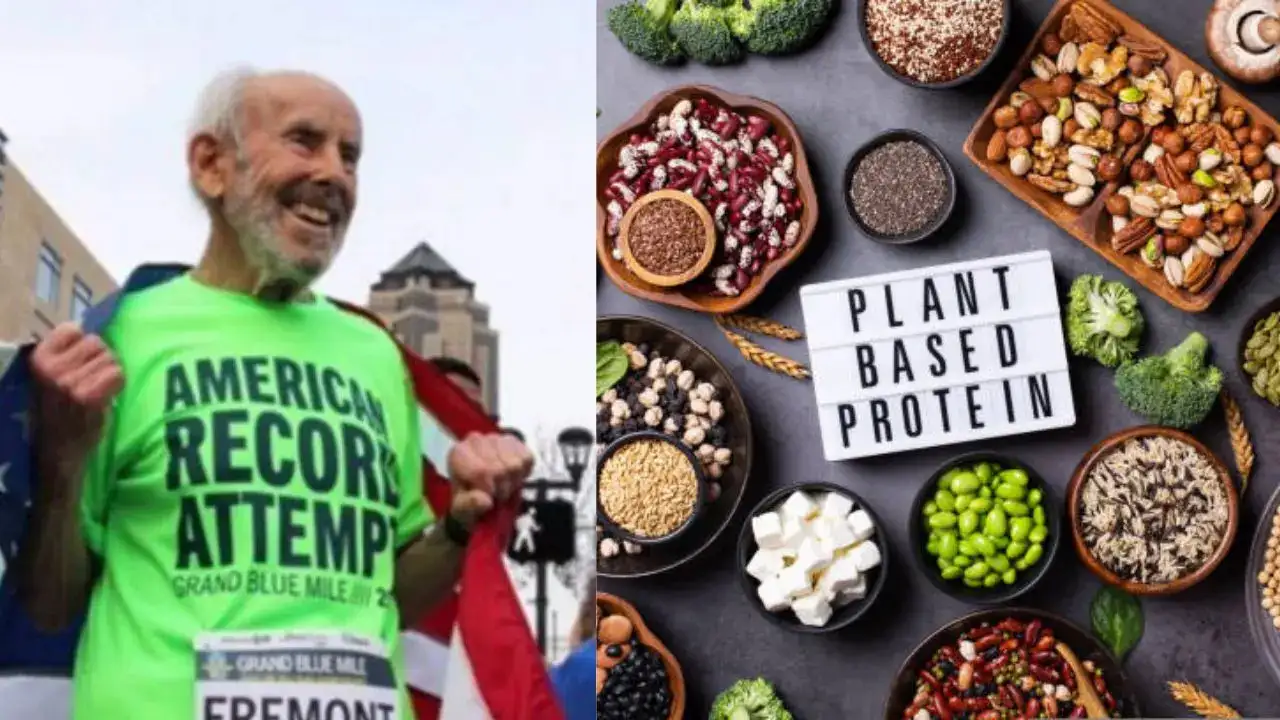
Mike Fremont says his mix of discipline, simplicity, and a lifestyle rooted in nature has helped them live this long (Pic: Greatveganathletes.com/iStock)
A 103-year-old man from Ohio, United States, is thriving – hale and hearty. Apart from doing all his chores, Mike Fremont climbs stairs, paddles canoes, and can even run without being breathless. More so, Mike even battled stage 4 cancer and claims to have defeated the deadly disease with commitment towards his health.
The centenarian says his mix of discipline, simplicity, and a lifestyle rooted in nature has helped him live this long.
Claims to have followed vegan diet to fight cancer
At the age of 69, Mike was given just three months to live and recommended surgery to treat his cancer. But Mike says instead he went for a natural treatment, relying completely on a plant-based macrobiotic diet inspired by The Cancer Prevention Diet by Michio Kushi. Over time, not only did his cancer disappear, but his arthritis also faded.
“I contracted a cancer which the Cleveland Clinic said would kill me in 3 months unless operated upon. I said no; I was going on a diet! The tumour had metastasized into my lymphatic system and would have required efforts to treat the metastases with radiation and/or chemotherapy (with questionable results in those earlier days). In 2 and a quarter years the tumour began to bleed; I was operated upon,” he said in an earlier interview.
“The surgeon looked for metastasis in 35 places and found zero. In other words, my Macrobiotic Diet, becoming a Vegan Diet, becoming a whole-Foods Plant-Based Diet, killed the metastases! “ Mike added.
Mike relies on a healthy, plant-based diet
Since 1994, Mike says he has been following a clean, plant-based diet. His daily menu consists of organic food grown on his own farm - brown rice, steamed vegetables like kale, carrots, cabbage, seaweed, and most notably, half a can of beans for protein daily.
Beans are legumes – a powerhouse of fibre, protein, and phytochemicals that are helpful in reducing oxidative stress – which leads to deadly diseases like cancer. According to the World Cancer Research Fund, plant-based diets can play a major role in cancer prevention and strengthening overall immunity.
Mike says he does not eat processed sugar, meat, dairy, or packaged foods at all and prefers his meals in their most natural state – boiled, steamed, or fermented. He eats an oil-free diet, so frozen, junk, and processed foods are off the shelf for him.
Mike’s exercise schedule
For a 103-year-old man, exercise and workouts may seem a little distant, but not for Mike. Until five years ago, he ran 10 miles thrice a week. Now, he does his daily workouts – cardio – by climbing close to 50 stairs daily. Along with that, for strength training, Mike does pull-ups and paddles his canoe with utmost ease.
“Movement isn’t a task; it’s like breathing,” he said in a podcast interview on YouTube. According to experts, regular workouts and physical activity help slow ageing and keep joints and cognitive health in check. Apart from taking care of his diet and exercise routine, Mike also gives equal importance to his sleep. Mike says he sleeps 8–9 hours every night, staying away from alarms and screen time before bed.
He believes quality sleep – uninterrupted and regulated – is important for giving your body the support it needs to repair cells, reduce inflammation, and support cognitive function.
Can a healthy diet heal cancer?
Even though there is no proof that popular diets and supplements can treat cancer, eating a healthy, well-balanced diet is important for your health.
Doctors say while many diets promote useful healthy eating messages, they often include specific and even extreme recommendations about what to eat and what to avoid, and why. This advice may have no credible research to support it, or emerging science at best, rather than the overall body of scientific evidence.
Some diets also recommend people avoid certain food groups entirely – like meats and other animal products, which is not necessary or evidence-based. This can be quite restrictive for people undergoing cancer treatment who may have side effects that diminish their appetite, lead to nausea and vomiting, cause mouth ulcers, and require flexibility with food choices to obtain the nutrition they need.
